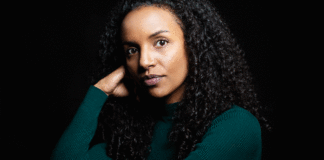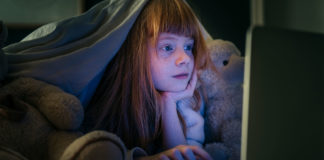3 features of self-loathing people that can transform them
In sync with our modern culture, many people obsess about self-esteem, not really knowing what it means. Giving up self-loathing seems to them an impossible task. And indeed, how does one reach self-respect? Instead of a straightforward answer, here are some insightful questions to prove that you are worthy and that you can trust yourself.
“In the ferocious world beneath the heavens”
Looking back, I realize how the ferocious world beneath the heavens is tamed, at crucial moments, through communication on that biblical Ladder of Jacob.
“Steps to Christ” | Book review
Ellen G. White (1827-1915) is considered the most translated American author, with books bearing her name being translated into more than 160 languages. Ellen was a woman of outstanding spiritual gifts, tireless in her mission to put into writing what she understood from God. Amazingly, her most translated book is one of the most succinct—Steps to Christ.
Small changes and their remarkable impact
Changing habits is like tightrope walking: an exercise in which the balance is always fragile, but it is the small changes that pave the way to truly remarkable results.
What is the use of general knowledge?
"No man can be called friendless who has God and the companionship of good books." (Elizabeth Barrett Browning, British poet)
Time famine, a modern affliction
If you asked someone you know how they were doing, how likely would they be to say that they were busy, tired, or stressed? For modern humans, a lack of time seems to be their Achilles heel, preventing them from enjoying the advantages of increased life expectancy, technological development, and the wide range of choices that material well-being affords.
COVID-19: Forgiveness in isolation
When we are isolated with our family, problems that are sometimes easy to ignore become more acute, and the need to receive and offer forgiveness to those around us becomes increasingly evident.
“Demon Dialogues” and the need for connection: Why do conflicts between partners arise?
Happy couples are not spared from marital conflict, but the crucial thing is that they have simple but effective tools to strengthen their relationship in a way that does not allow the conflict to destroy the emotional connection between them.
Great expectations in friendship
How can we protect ourselves against expecting too much of our friendships? Can we do something to prepare for the disappointment? And what does one do to deal with it?
The surprising effects of music on the brain
People have always loved and cherished music, investing time into both composing and listening to it. Journalists from The New York Times sought to find the reason behind our deep attachment to this intangible thing that, for most of us, yields no material gain.
A brief history of van life
#vanlife . . . it’s the aesthetic trend we’ve seen sprawled across the internet in the past decade. The reservoir of photographs framed by flung-open doors or windows onto a glorious, unpeopled view has stirred many an individual’s curiosity.
Tears, war, and tulips: a day among the Ukrainian refugees at the Siret Customs Point
The wind is blowing and it is snowing at the Siret Customs Point. Refugee groups stream by, women with children clinging to them, and the words of a little girl from another war, concluded almost eight decades ago, keep running through my mind: “And this was imprinted in my mind, that when my father is not home, it is war.”
Strategies for managing children’s digital behaviour
Parents have a crucial role in managing their children's digital behaviour, as well as preventing and detecting addiction. Their success depends on their own relationship with digital devices.
Love doesn’t give up, regardless of the prognosis
Lace-edged rumours wafted through the student campus in Sagunto, Spain: Devin, one of the American boys who had come to Spain for a year of study, was dating Teresa, a second-year theology student who was hard to miss. Her striking beauty and cheerful nature attracted gazes like a magnet. No one suspected then, not even the protagonists of this relationship, that their love...
The sad people at the circus
At night, the main boulevard in Las Vegas is so crowded that in order to move forward you actually have to push your way through the motley crowd. People of all kinds fill the space already suffocated by the construction conglomerate, which is equally diverse.


























